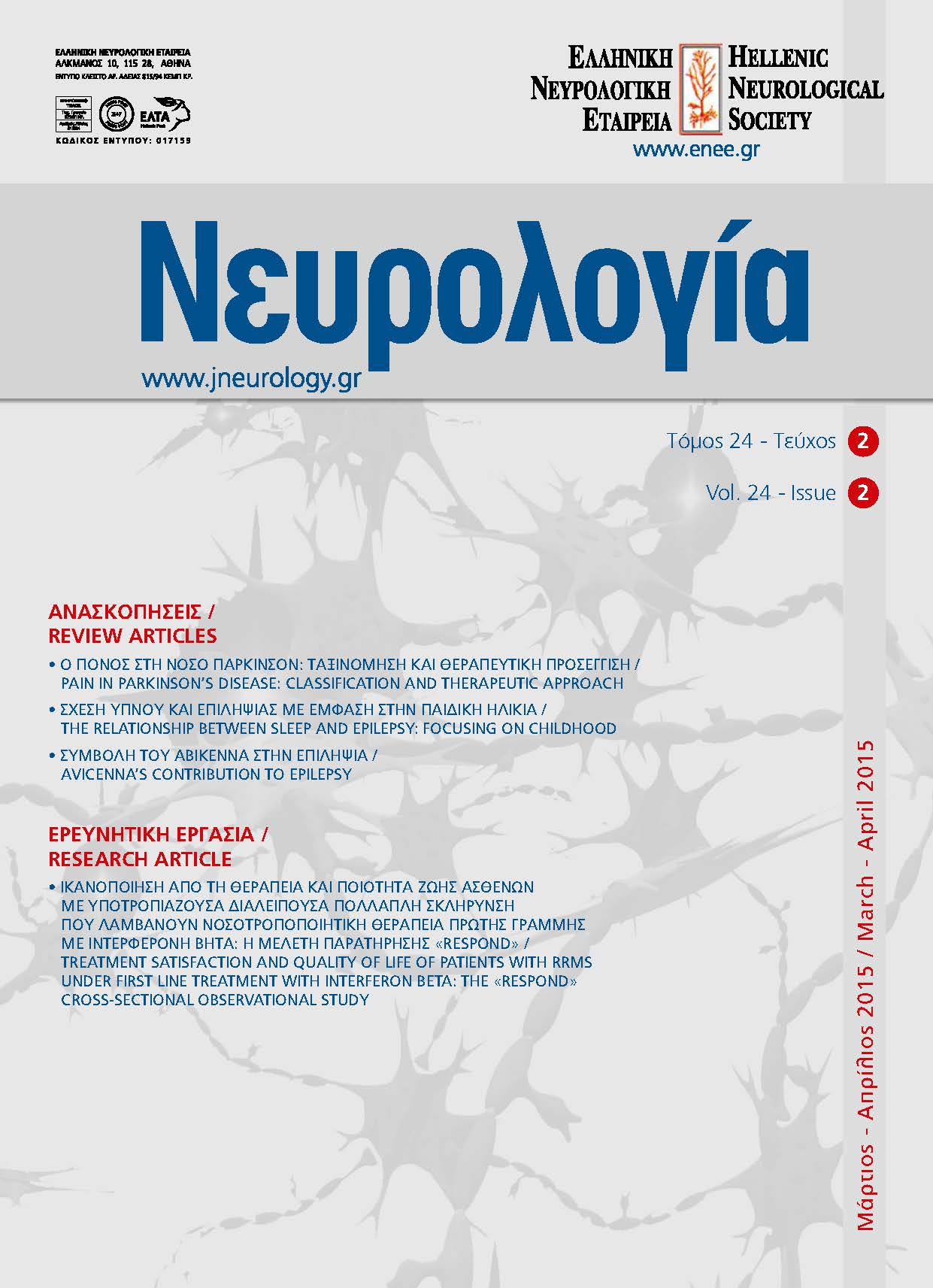Avicenna’s contribution to epilepsy
Keywords:
Avicenna, EpilepsyAbstract
Avicenna or Ab–u ‘Al–ι al-Ηusayn ibn ‘Abd All–ah ibn S–ιn–a was an Arab physician and philosopher of Persian origin in the 11th century and one of the most brilliant thinkers of the golden age of Islam.
Avicenna dealt extensively with the issue of epilepsy in his work «The Canon» (Qânûn fi’t-tibb), a colossal textbook that represented the link between Hippocratic, Galenic and modern medicine and became a
point of reference for medical science for many centuries.
Avicenna defines epilepsy as a condition that «...prevents the affected organs to use their senses and
affects movement and standing upright». He attributes the disease to some obstruction in the ventricles
of the brain, he describes the partial and the generalized seizures and he attempts a classification. Furthermore Avicenna distinguishes childhood epilepsy from adult epilepsy and strongly believes that seizures
generally depend on a dynamic interaction between endogenous, epileptogenic and provocative factors.
The treatment of medieval Persian medicine for epilepsy is multifactorial and relies greatly on dietary
recommendations and medications that include an endless list of powders, mixtures, tinctures, extracts,
tablets, infusions, ointments and patches.
Avicenna did not significantly expand the knowledge on epilepsy. However, in an era of demonology and
prejudices, he deserves our admiration for his zeal to gather and enrich the medical knowledge of his time,
for his perseverance to advance health sciences and for his effort to understand the nature of the disease
with a rational and scientific spirit.


